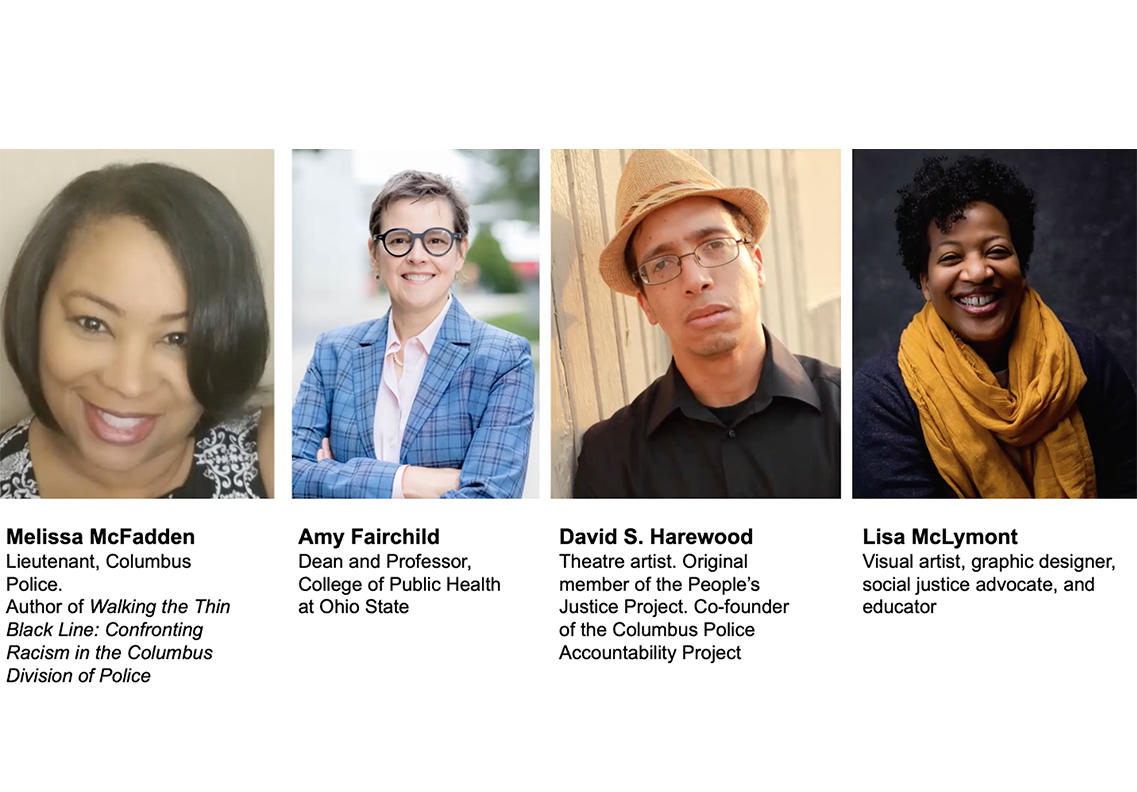A discussion on policing, public health and public art

On Nov. 17, Dean Amy Fairchild and Assistant Dean for Strategic Initiatives Jennifer Beard participated in the virtual event "Present Insights and Future Visions: Policing, Public Health and Paths Toward Healing."
The event, co-sponsored by the College of Public Health, the Wexner Center for the Arts and Ohio State Libraries, brought together artists, activists, police and public health experts to explore actions and initiatives that are moving us toward progress and healing following the declaration of racism as a public health crisis and the demonstrations that called for accountability in our unjust systems.
In addition to Dean Fairchild, the panel — moderated by Beard — included:
- David Harewood, Theater artist. Original member of the People’s Justice Project. Co-founder of the Columbus Police Accountability Project
- Melissa McFadden, Lieutenant, Columbus Police. Author of Walking the Thin Black Line: Confronting Racism in the Columbus Division of Police
- Lisa McLymont, Visual artist, graphic designer, social justice advocate, educator
About The Ohio State University College of Public Health
The Ohio State University College of Public Health is a leader in educating students, creating new knowledge through research, and improving the livelihoods and well-being of people in Ohio and beyond. The College's divisions include biostatistics, environmental health sciences, epidemiology, health behavior and health promotion, and health services management and policy. It is ranked 22nd among all colleges and programs of public health in the nation, and first in Ohio, by U.S. News and World Report. Its specialty programs are also considered among the best in the country. The MHA program is ranked 5th and the health policy and management specialty is ranked 21st.